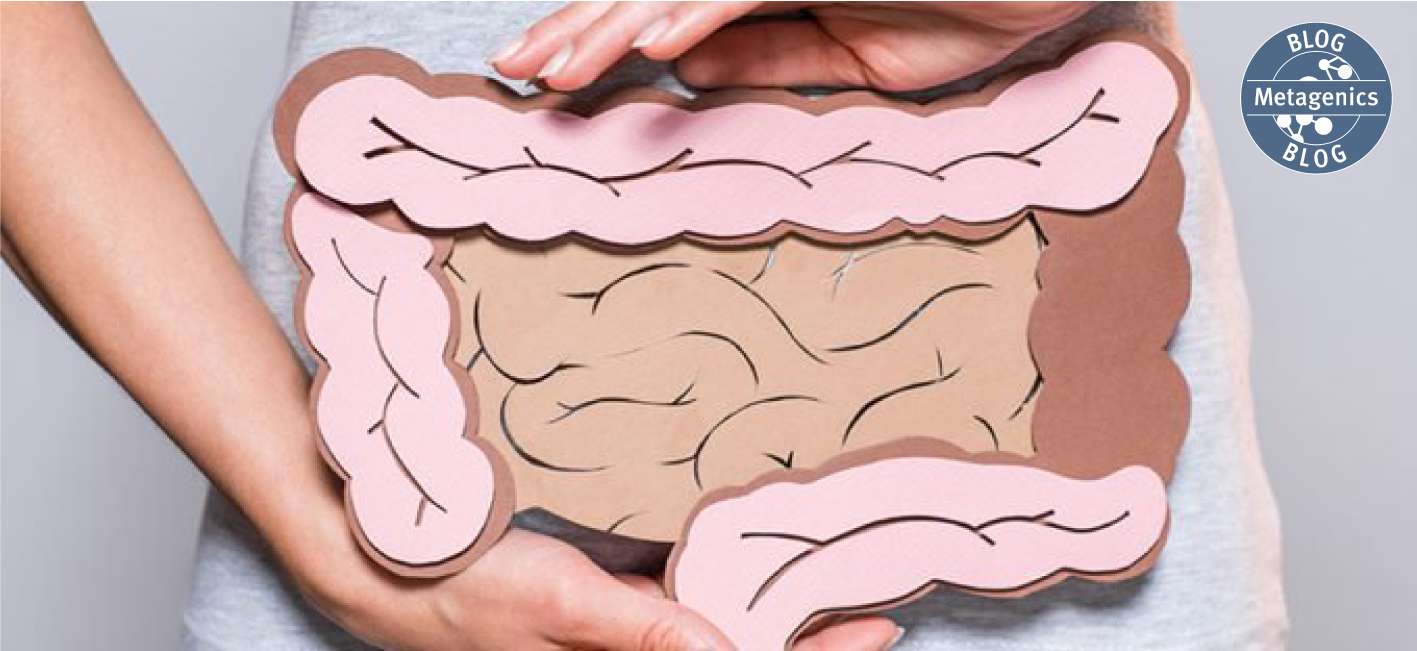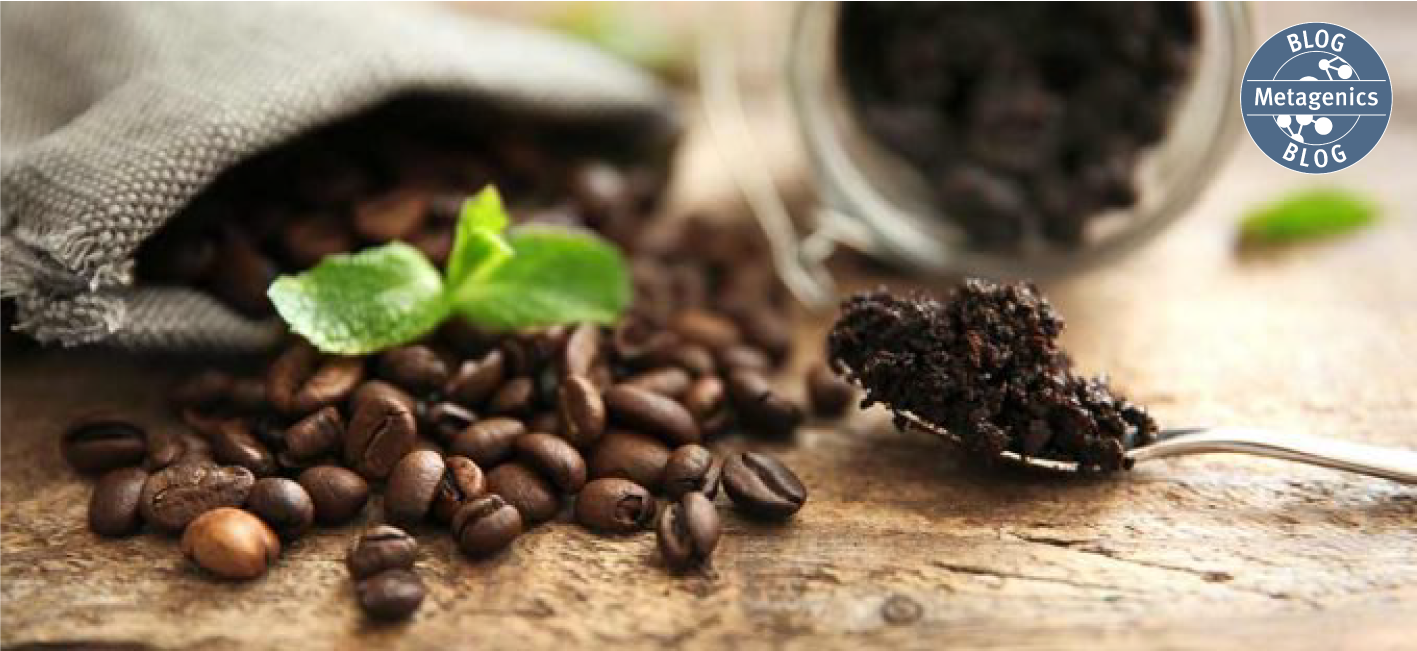|
Gut health is important for overall health, and there are many wide-ranging causes that can change and affect gut health. These changes can be from acute causes, such as gastrointestinal surgeries, to others, such as the normal aging process, which may affect gastrointestinal motility. Regardless of the cause, the intestines usually experience changes during the healing or aging process.1
That said, despite any shifts, it’s important to get back on track as soon as possible and make the gut the best it can be.1 Here are a few things to consider. What are the implications of changes in the gut? The gut has trillions of bacteria that help to digest food, absorb nutrients, and manage our wellbeing.Many of these bacteria are beneficial, and evidence has shown that good gut health is linked to supporting general health, including the immune system and brain. However, certain gastrointestinal conditions can lead to changes in the gut’s microbial environment and result in poor health and wellness.2 Common sources of gut-health changes include shifts in gut immunity, stomach acid, and gastrointestinal flora (that is, the ecosystem of over 400 bacterial species that make up the microbiome).2,3 Some digestive changes—including compromised gut function—are simply caused by the aging process.3This is because our natural metabolic processes slow as we grow older. Are there ways to support common gastrointestinal changes? You’ve probably heard the expression, “prevention is the best form of medicine.” Prevention is admittedly king in a healthcare setting, but it also involves hard work and dedication. So how can we avoid intestinal changes that may affect gut health? Here are some preventive strategies that may help keep your gastrointestinal health in check:4
Which ingredients can enhance gut health?Many foods and supplements are connected to a healthy gut and a strong digestive tract.4 Some options to explore include: 1. Probiotics Probiotics are “live microorganisms that, when administered in adequate amounts, confer a health benefit on the host.”6,7 They offer a number of benefits, including supporting digestion, and data suggests a gut-brain connection exists.8 While only strain-identified probiotics have been researched extensively for specific health benefits, fermented foods, such as kimchi, miso soup, kombucha, and kefir are popular dietary sources of probiotics. Most probiotics come from one of the following genera of bacteria:8
2. Prebiotics Prebiotics are fibrous carbs the human body cannot digest (but certain bacteria in the gut can). They serve as food for probiotics and include oats, garlic, onions, apple skin, beans, and chicory root.5 Much like probiotics, prebiotics encourage healthy digestion.8 3. Fiber When it comes to improving our digestive health, fiber—also known as roughage—is crucial.13 It cannot be digested by the body; rather, it passes through the stomach, small intestine, and colon more or less intact.9 Fruits and vegetable, whole grains, beans, and legumes are all rich in fiber.14 Fibrous ingredients are generally full of nutrients as well, which may enhance our absorption abilities.13 There are two types of fiber, one of which is more closely linked to the digestive system:13
Be sure to discuss your fiber intake with your healthcare practitioner to minimize chances of discomfort.13 4. Glutamine This amino acid provides both a source of fuel and precursors for growth to the rapidly dividing cells of the intestinal lining.15 5. Inner-leaf aloe Sourced from the aloe vera plant, inner-leaf aloe has been shown in studies to support temporary digestive symptoms such as cramping, bloating, and flatulence.16 It has also been shown to a support a healthy intestinal lining.17 6. Zinc-carnosine Ideal for gastric comfort, zinc-carnosine works by supporting the healthy ecology and integrity of the stomach lining.18,19 Always consult your healthcare practitioner before making any adjustments to your diet or adding any supplements. For more information on nutrition and gut health, please visit the Metagenics blog. References
0 Comments
Have you ever stood before the wall of vitamins at the drugstore or your healthcare practitioner’s office, wondering what you should take? Choosing supplements can be a daunting experience: Some boxes are orange. Some bottles are silver. Some contain iron, while others do not. Which one is right for you?
Start the selection process by getting specific about your particular stage of life. From young adulthood to the childbearing years and into menopause, each life stage may require greater emphasis on different nutrients to help your body get what it needs for optimal wellness. Young, ambitious, and carefree! Does this ring true for you? Women in their late teens or early 20s are going off to college, choosing a career path, and just beginning to explore adulthood. This is a time to be mindful of getting the appropriate nutrients you need to create a healthy foundation for the years ahead. Calcium. This mineral is important for women of all ages, but especially so in your 20s when bone mass reaches its peak. After this time, the risk of losing bone mass increases as a woman moves into her 30s and beyond.1 Taking a calcium supplement can help the body build bone, especially when paired with vitamin D3, which is known to enhance absorption of this vital mineral.2 Iron. Iron is important for young ladies, as menstruation is one of the ways this mineral is depleted from the body. In fact, menstruation increases the average daily iron loss to about 2 mg per day in premenopausal female adults,3 with excessive menstrual blood loss as the most common cause of iron deficiency in women.3 Baby, it’s you!The time of a woman’s life when she can become pregnant and have a baby is very special. It is also especially important to consider which nutrients are needed before conceiving and to ensure a smooth pregnancy and delivery. Folic acid. This vitamin (known as folate in its natural form) is needed before and during pregnancy. If you are considering getting pregnant, it is smart to increase folic acid intake before conceiving—there is strong evidence that taking folic acid prior to conception and during the first trimester of pregnancy can reduce the risk of neural tube defects of the brain, spine, or spinal cord by up to 70%.4Additionally, folic acid requirements are 5- to 10-fold higher in pregnant women than nonpregnant women,5 so get your folic acid going! Iron. Iron supplementation in pregnancy is often recommended. During pregnancy, the body’s iron requirements progressively increase until the third month.6 This is because more iron is needed for the growing fetus and placenta, as well as to increase your red blood cells.7 Calcium. Calcium is essential for fetal development, and this requirement increases during pregnancy (from 50 mg/day at the halfway point up to 330 mg/day at the end) and lactation.6 Iodine. During pregnancy, iodine is needed in the production of fetal thyroid hormones (the fetus’ thyroid begins functioning as early as 12 weeks in the womb!) and should be increased by about 50%.6 Vitamin D. Vitamin D (mostly vitamin D3, as it’s the predominant form in mom’s blood) is needed in the first stage of pregnancy, as it contributes to embryo implantation and the regulation of several hormones.6 Choline. Choline is an important nutrient for the health of women throughout their lifetime, and in particular during pregnancy. Choline is also vital for early brain development.8 The change of lifeAs your body progresses toward menopause, it produces less estrogen, opening up a world of change. It is during this time that certain nutrients can help support you in the management of symptoms like hot flashes and mood fluctuations, as well as help stave off concerns about bone mass loss. Calcium and vitamin D. In menopause, calcium remains a top nutrient to support the maintenance of bone mass. Bone turnover increases at this time, while the creation of new bone does not, which can lead to bone mass loss. Along with calcium, vitamin D is an important factor in helping to support bone health, which has been shown to help prevent bone mass loss in perimenopausal and menopausal women.9 Vitamin K and vitamin D. It has been shown that Vitamin D and K are both important nutritional factors in supporting mineralization and healthy structure of bones.10 Vitamin B12. When it comes to menopause, the B’s have it! Vitamin B12 plays a key role in energy metabolism, something we all need more of during menopause.11 Where to begin?Your healthcare practitioner is the best person to ask about which nutrients you may need. So get out of the vitamin aisle and in to see your doctor! This content is not intended as a substitute for professional medical advice, diagnosis, or treatment. Individuals should always consult with their healthcare professional for advice on medical issues. References:
By Robert Silverman, DC, DACBN, DCBCN, MS, CCN, CNS, CSCS, CIISN, CKTP, CES, HKC, FAKTR
If you’re a coffee drinker, you’re in good company. Visit any major coffee shop in the US or Europe and you’re bound to either wait in line or find every seat taken in the café. According to the International Coffee Organization, 151.3 million bags of coffee are consumed each year globally—and that number only continues to rise.1 As the most consumed beverage in the US (beating out even bottled water), coffee boasts a few other startling statistics, too. Coffee is the world’s most sprayed crop that humans consume, and the third-most sprayed agricultural crop, behind cotton and tobacco. Exposure to the synthetic pesticides and herbicides sprayed on non-organic coffee has harmful effects on your health—both in the short term and long term.2 What does this mean for the millions of people consuming coffee every day? And what can people do to protect themselves? Let’s take a closer look. What non-organic coffee brands don’t want you to know Coffee offers a variety of health benefits, such as antioxidant and anti-inflammatory effects. Yet most coffee drinkers probably aren’t aware of—and therefore don’t know to weigh—the negative effects of drinking non-organic coffee, namely those caused by synthetic pesticides. The Pesticide Action Network, a UK-based charity focused on promoting safe and sustainable alternatives to pesticides, reports that acute exposure to pesticides can be toxic to humans and can manifest as skin rashes, headaches, nausea, vomiting, lethargy, or allergic reaction.2 Long-term pesticide exposure and consumption has been linked to Parkinson’s disease, depression, anxiety, asthma, breast cancer, prostate cancer, decreased fertility, diabetes, and obesity.2 Furthermore, non-organic coffee wreaks havoc even before it reaches consumers. Coffee farms that spray pesticides also put their employees and local communities at risk. Farmers themselves are exposed to the harmful chemicals that linger in the air. Meanwhile, chemicals run into local water sources, polluting nearby communities’ drinking water. The takeaway here? Non-organic coffee isn’t good for those who drink it, farm it, or live near it. But you won’t find that on any food label. Why organic coffee is better for you Organic coffee, on the other hand, is grown and produced without the use of synthetic fertilizers or chemicals. Instead, it’s treated with organic fertilizers—like coffee pulp, chicken manure, or compost—and organic pesticides. Unlike non-organic coffee, most organic coffee is grown in the shade of lush forests. Why does that matter? Forested coffee farms sustain soil fertility, keep regional ecosystems alive, and handle unusual weather patterns better, making them a safer investment for farmers.3 From a health perspective, organic coffee is high in antioxidants, vitamins, and minerals, such as riboflavin, pantothenic acid, and niacin, as well as other nutrients like potassium, manganese, and magnesium.4 Coffee boosts the immune system and helps the body guard against disease. Moderate amounts of caffeine can also provide a natural energy boost. Organic coffee typically tastes better, too; growing in higher altitudes where it takes longer to develop results in a richer flavor many coffee drinkers can distinguish. By choosing organic coffee, you’re supporting the environment, sustainable farming methods, and avoiding unnecessary exposure to pesticides for your own health. The best type of organic coffee Have I sold you on switching to organic coffee yet? Good—now I’m going to do you one better: bio-dynamic coffee. Cultivated by a process called bio-dynamic agriculture, which views all parts of the farm as being interconnected, bio-dynamic coffee was the first type of organic coffee.5 Bio-dynamic coffee farming focuses on the health of the farm and and the integration of all its parts. To differentiate it from other organic farming practices, bio-dynamic coffee farming doesn’t allow outside materials to be brought onto the farm.5 Soil health, for example, is maintained only through nutrients produced from the compost prepared from materials grown or raised on the farm.5 Not only does this practice ensure every bean is organic, this method promotes bio-dynamic coffee as one of the few crops that preserves natural landscapes rather than destroys them.5 Sip on this If you plan to take your first sip of bio-dynamic or organic coffee black, go right ahead. If you take your coffee with the customary milk and sugar, there are a few more things you should know. When it comes to milk, I recommend skipping dairy and choosing an alternative nut milk like almond, coconut, or cashew—but be sure to choose one without large amounts of added sugar. Speaking of sugar, your best alternative for sweetening your coffee is monk fruit extract or coconut sugar. If you think you’ll have difficulty remembering what to avoid as you brew your organic coffee each morning, I use two acronyms as my guide—no GPS: Gluten, processed foods, and sugar; as well as no DNA: Dairy, nicotine, and artificial sweeteners. For those organic coffee drinkers who love the taste but would rather avoid the caffeine, I have some additional guidance to share. Some decaf coffee, even in organic form, may increase your LDL cholesterol levels.6 Studies have shown that the Robusta coffee bean is to blame, so when ordering decaf, be sure you’re drinking coffee made from Arabica beans.7 As a coffee drinker, you have a tremendous amount of choice. To make the biggest impact on your individual health, the health of those involved in the coffee farming industry, and the environment, choose organic. It’s a win-win-win. Robert G. Silverman, DC, DACBN, DCBCN, MS, CCN, CNS, CSCS, CIISN, CKTP, CES, HKC, FAKTR Dr. Robert G. Silverman is a chiropractic doctor, clinical nutritionist and author of Inside-Out Health: A Revolutionary Approach to Your Body, an Amazon number-one bestseller in 2016. The ACA Sports Council named Dr. Silverman “Sports Chiropractor of the Year” in 2015. He also maintains a busy private practice as founder of Westchester Integrative Health Center, which specializes in the treatment of joint pain using functional nutrition along with cutting-edge, science-based, nonsurgical approaches. Dr. Silverman is a seasoned health and wellness expert on both the speaking circuits and within the media. He has appeared on FOX News Channel, FOX, NBC, CBS, and CW affiliates as well as The Wall Street Journal and NewsMax, to name a few. He was invited as a guest speaker on “Talks at Google” to discuss his current book. As a frequent published author for Dynamic Chiropractic, JACA, ACA News, Chiropractic Economics, The Original Internist and Holistic Primary Care journals, Dr. Silverman is a thought leader in his field and practice. Dr. Silverman is a paid consultant and guest writer for Metagenics.
By Nilima Desai, RD
If you have ever experienced hot flashes, night sweats, etc., due to menopause, you are not alone. About 80% of menopausal women suffer from hot flashes, night sweats, sleep disturbances, depression, anxiety, and vaginal dryness,¹ which can significantly affect their quality of life. Menopause is characterized by a decrease in estrogen levels, which triggers these uncomfortable symptoms. Most women report hot flashes to be the most bothersome symptom and the reason for starting hormone therapy.² Symptom Relief OptionsIn addition to lifestyle recommendations, such as following a plant-based diet, increasing physical activity, and minimizing smoking and alcohol intake, the addition of hormone replacement therapy (HRT) has been most effective in reducing vasomotor symptoms (hot flashes, night sweats) commonly associated with decreased estrogen levels.²,³* However, current recommendations from the American Congress of Obstetricians and Gynecologists suggest limiting HRT to the lowest effective dose for the shortest amount of time possible.⁴ As a result, 40-50% of women choose to use practical alternative options, such as plant-derived solutions to address menopause-related symptoms.³ Various plant-derived solutions including phytoestrogens such as isoflavones, lignans, and other Chinese and herbal remedies such as ginseng, black cohosh, etc., have been studied for the relief of menopausal symptoms.* Plant-Derived Solutions: Phytoestrogens are a group of nonsteroidal plant-derived compounds with estrogen-like properties. The chemical structure contains a phenolic ring that enables them to bind to estrogen receptors in the body.⁵ They bind to both types of estrogen receptors, Erα and Erβ.⁵ However, research suggests that majority of the phytoestrogens have a higher affinity to bind to Erβ as compared to steroidal estrogens.⁵ Therefore, they may exert their actions through different pathways and may potentially induce different beneficial responses.* There are four classes of phytoestrogens: isoflavones, lignans, coumestans, and stilbenes.⁶
Results from 21 randomized controlled trials (RCTs) examining the association between different phytoestrogens and menopausal symptoms (frequency and duration of hot flashes, vaginal dryness, etc.) included in a meta-analysis concluded that there was an association of overall phytoestrogen use with a decrease in the number of daily hot flashes and in vaginal dryness scores.³ However, the use of phytoestrogens was not associated with significant changes in 24-hour night sweat episodes.³* ERr 731® is a standardized extract of Siberian rhubarb root, a plant-derived, nonhormonal therapy designed to alleviate menopausal symptoms, including hot flashes.* In a confirmatory RCT involving 119 perimenopausal women, compared with perimenopausal women receiving placebo, those receiving ERr 731® experienced a median 83% decrease in daily hot flashes over the course of 12 weeks.⁷ Compared to placebo, perimenopausal women who received ERr 731® (the extract found in Estrovera) experienced a decrease in symptoms (as indicated by an average [mean] reduction) of up to 83% in individual Menopause Rating Scale scores.⁸ Clinical benefits of ERr 731® appear to be related to selective binding of Erβ and lack of affinity for Erα.9,10* Black cohosh is an herb that has a long history of use for the relief of menopausal symptoms, including hot flashes and night sweats. Results from four RCTs examining the association between black cohosh with menopausal symptoms included in a meta-analysis concluded that black cohosh was not associated with changes in the number of hot flashes and night sweats within a 24-hour period.³ Therefore, although black cohosh is a popular herbal remedy to address menopausal symptoms, research has shown no significant association between black cohosh supplementation and relief in menopausal symptoms.³* Other herbs: There aren’t many studies conducted on the associations of Chinese and non-Chinese medicinal herbs with menopausal symptoms. The few RCTs conducted on the various herbs were not consistent and in general didn’t show any association with symptom relief.³* Although many RCTs have been conducted on phytoestrogens and herbal remedies in relation to menopausal symptom relief, further studies are needed to determine potential long-term adverse health effects.* Next StepsUse of HRT needs to be evaluated carefully, and the clinician should assess the risks and benefits associated with prescribing HRT for each individual woman based on her symptoms and personal and family medical history. For women who choose to avoid or have contraindications to HRT, plant-derived therapies in conjunction with a patient-centered approach may potentially provide an alternative in relieving certain symptoms associated with menopause. To determine the best options, patients should always consult with their healthcare provider. *These statements have not been evaluated by the Food and Drug Administration. These products are not intended to diagnose, treat, cure, or prevent any disease.References:
|
Categories
All
Archives
April 2024
|
|
Join Our Community
|
|
Amipro Disclaimer:
Certain persons, considered experts, may disagree with one or more of the foregoing statements, but the same are deemed, nevertheless, to be based on sound and reliable authority. No such statements shall be construed as a claim or representation as to Metagenics products, that they are offered for the diagnosis, cure, mitigation, treatment or prevention of any disease. |






 RSS Feed
RSS Feed